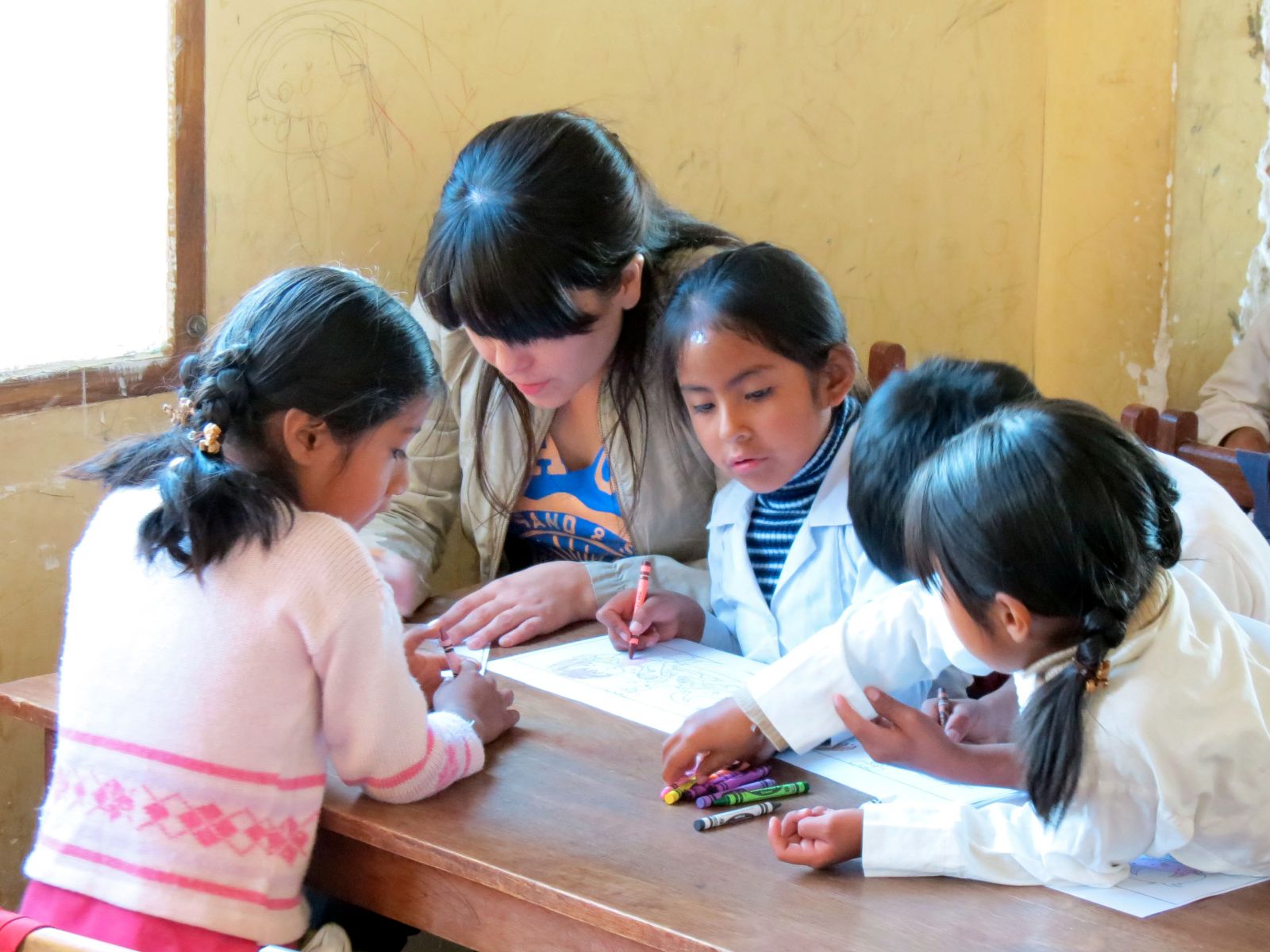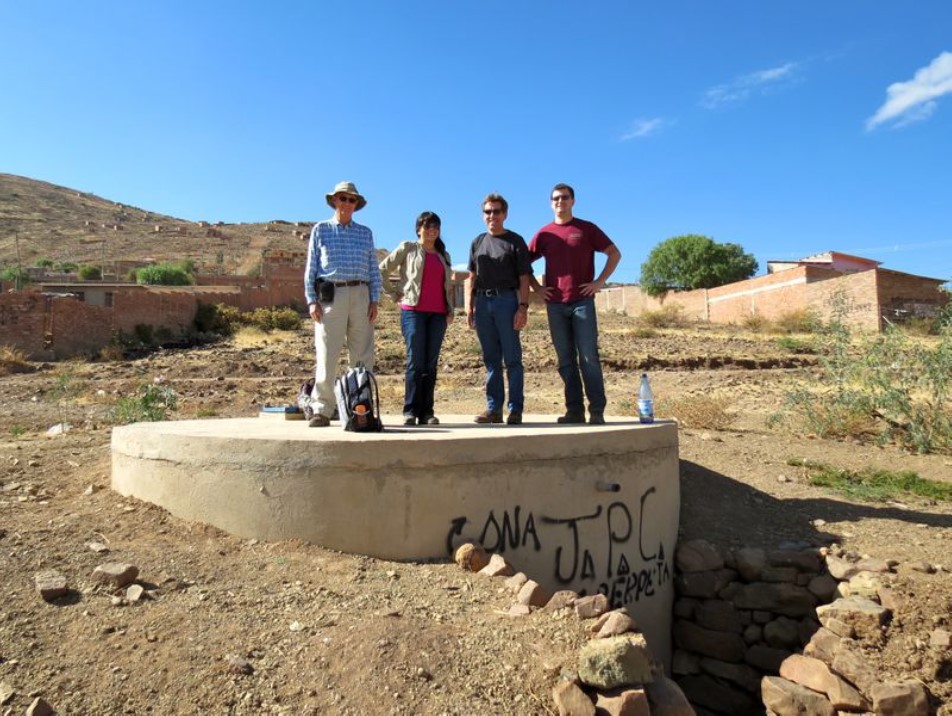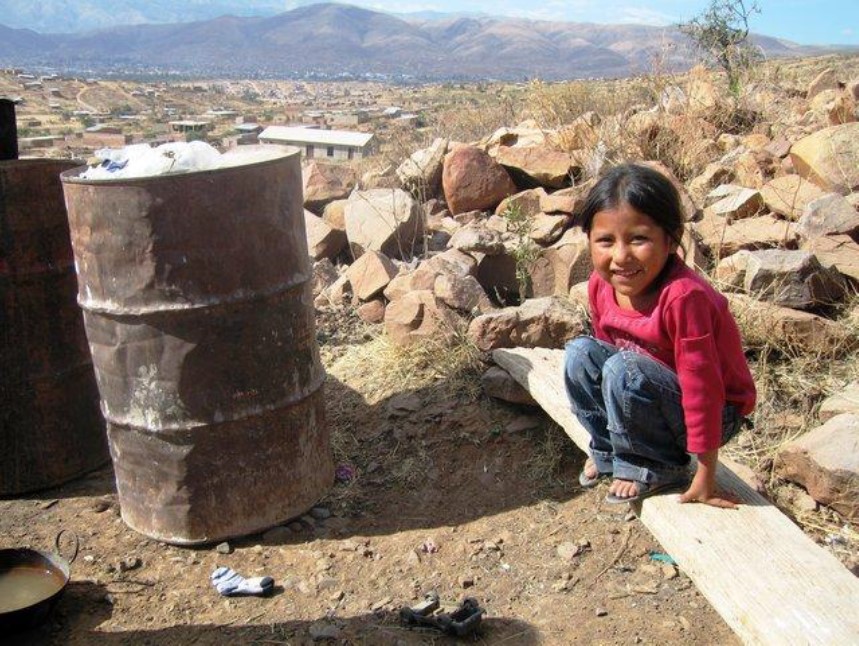Location:
The Uraqueni Water Project is located in the villages of San Nicolás, Villa de Oropeza, and Cobol. The villages are located in a rocky, mountainous area on the outskirts of Cochabamba, Bolivia, which itself is located in the high plateau area of southern Bolivia, and has a population of approximately 500,000.
Community Details:
Most of the residents of the villages have migrated from rural areas in the western part of the country with the hope of finding work in the city. At the time the program began, there was almost a complete lack of infrastructure. The villages lacked plumbing including fresh water and sewage systems, as well as paved roads. An initial survey trip in 2006 found that health conditions were poor, due in large part to this lack of clean water and basic sanitation. At the time, water was being delivered to the communities via truck and stored at each house in a water tank that may sit for weeks before being refreshed. Tests also confirmed significant prevalence of E. Coli and coliform bacteria in nearby standing water. The primary need in the communities was a reliable, clean water supply.
Project Summary:
The project design consisted of two gravity fed water systems, one for San Nicolás and Villa de Oropeza and one for Cobol. Each system consists of a 30 cubic meter concrete water tank located uphill of the communities. HDPE water lines distribute the water to residences in the communities, and water meters were installed at each household connection. A system was established wherein good quality water is being purchased from the municipal water supply of Cochabamba, and delivered to the water tanks by dedicated cistern trucks. A local community water board was established which manages this process, administers water rates to the residents, and maintains and operates the system. Health surveys conducted at various stages throughout the project have confirmed that the incidence of water-related disease such as diarrhea have been reduced significantly as a result of the projects. Workshops were also held in the communities to stress the importance of proper personal hygiene.

Community leaders have since taken ownership of the projects, and were key resources in getting local municipal approvals for the projects, engaging and gaining community support, as well as facilitating education forums and overall project implementation planned by EWB team members. Interface with other NGOs, including Rotary International, Water for People, and UN-Habitat was also valuable and contributed to the success of the projects.
Project Adoption Date:
July 2006
Project Status:
Complete – Water Improvement Project
Impact: A clean water system was implemented for the San Nicolás, Villa de Oropeza, and Cobol communities with 1,600 people impacted.
The project was an overall success. The children are healthier, and it allowed for a further focus on infrastructure and community needs, such as an orphanage and cleaner and healthier homes.
Team Leads:
- Ariadna Ruiz – Program Lead
- Dan Kennedy – Technical Lead



